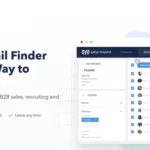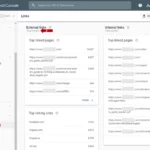Popular marketing specializations include digital marketing, social media marketing, content marketing, brand management, and market research.
1. Determine Your Marketing Niche
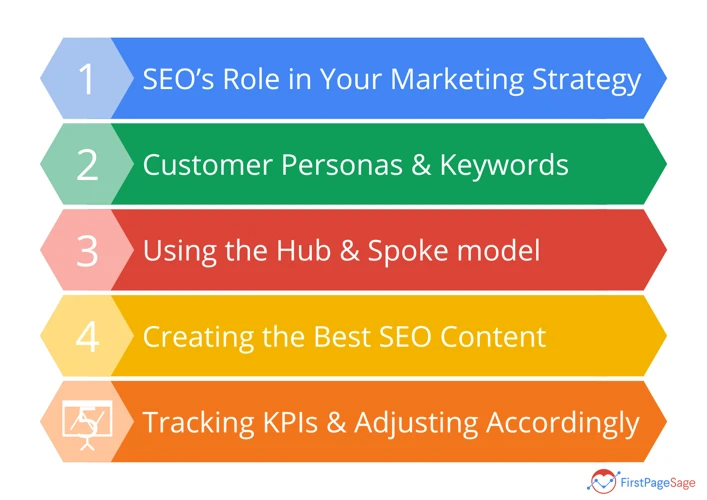
When starting your marketing career, it’s important to research and explore the various marketing fields available. Marketing encompasses a wide range of specializations, including digital marketing, social media marketing, content marketing, brand management, and more. Each field has its own unique set of skills and requirements, so take the time to familiarize yourself with the different options. By understanding the various marketing fields, you can identify which ones align with your interests and strengths.
To determine your marketing niche, it’s crucial to identify your interests and skills. Reflect on what aspects of marketing intrigue you the most and what you excel at. Are you passionate about creating compelling content? Do you enjoy analyzing data and consumer behavior? Are you skilled at building and managing brands? By understanding your interests and strengths, you can narrow down your options and focus on the areas that align with your passions and abilities.
After researching different marketing fields and identifying your interests and skills, it’s time to choose your marketing specialization. This decision will heavily impact your career trajectory, so it’s important to choose wisely. Consider the demand for certain specializations, the skills required, and the potential for growth and advancement. Whether you decide to specialize in digital marketing, content marketing, or brand management, make sure it aligns with your interests and offers ample opportunities for professional development.
By carefully determining your marketing niche, you can set the foundation for a successful and fulfilling marketing career. Remember, it’s essential to choose a specialization that aligns with your interests and skills while also considering the industry’s demand and potential for growth.
1.1 Research Different Marketing Fields
When researching different marketing fields, it’s important to explore the wide range of options available. Digital marketing is a popular field that focuses on promoting products or services through various online channels. This includes search engine optimization (SEO), social media marketing, email marketing, and pay-per-click advertising. Content marketing is another field that involves creating and distributing valuable and relevant content to attract and engage a target audience. Brand management focuses on building and maintaining a strong brand identity and reputation. Other fields to consider include market research, public relations, and event marketing. Take the time to research each field thoroughly, understanding the skills required, the job prospects, and the potential for growth in the industry. By gaining knowledge about different marketing fields, you can make an informed decision about which area aligns best with your interests and career goals.
1.2 Identify Your Interests and Skills
Identifying your interests and skills is a crucial step in determining your marketing niche. Take the time to reflect on what aspects of marketing intrigue you the most and what you excel at. This self-reflection will help you understand where your passions lie and where you can add the most value in the marketing industry.
Consider the different areas of marketing and think about what activities or tasks you enjoy the most. Are you passionate about creating compelling content? Do you have a knack for analyzing data and consumer behavior? Are you skilled at building and managing brands? By identifying your interests, you can focus on the areas that align with your passions and bring you the most satisfaction in your marketing career.
In addition to interests, it’s also important to assess your skills. Take inventory of the skills you have acquired through education, previous work experience, or personal projects. These skills could include writing, graphic design, data analysis, project management, or communication. By identifying your skills, you can leverage them to excel in specific marketing roles and stand out from the competition.
Remember, your interests and skills are unique to you, and they play a vital role in shaping your marketing career. Take the time to explore and understand them fully before moving forward. By doing so, you will be able to choose a marketing specialization that aligns with your interests and utilizes your skills to their fullest potential.
For further guidance on growing your online business, check out our article on “How to Grow My Online Business“.
1.3 Choose Your Marketing Specialization
Choosing your marketing specialization is a critical step in establishing a successful career in the field. While there are numerous marketing specializations to choose from, it’s essential to select one that aligns with your interests, skills, and long-term career goals.
When making this decision, consider the demand and market trends for different specializations. For example, digital marketing has experienced rapid growth in recent years, with businesses increasingly relying on online platforms to reach their target audience. By specializing in digital marketing, you can gain expertise in areas such as search engine optimization (SEO), social media marketing, and email marketing, which are highly sought after in today’s digital landscape. If you’re passionate about content creation and storytelling, becoming a digital creator could be the perfect specialization for you. This field focuses on producing engaging and impactful online content, such as videos, podcasts, and blog posts, to attract and retain an audience.
Alternatively, you may aspire to become a marketing manager, overseeing and strategizing marketing campaigns for a company or brand. This role requires strong leadership and communication skills, as well as a deep understanding of consumer behavior and market trends. If you’re interested in this path, it’s important to develop a solid foundation in marketing principles and gain experience in project management and team coordination.
Ultimately, the choice of marketing specialization depends on your unique strengths, interests, and career aspirations. Take the time to explore different options, research industry trends, and consider your long-term goals. By choosing a specialization that aligns with your passions and offers growth opportunities, you can set yourself up for a rewarding and fulfilling marketing career.
2. Gain Relevant Education and Knowledge
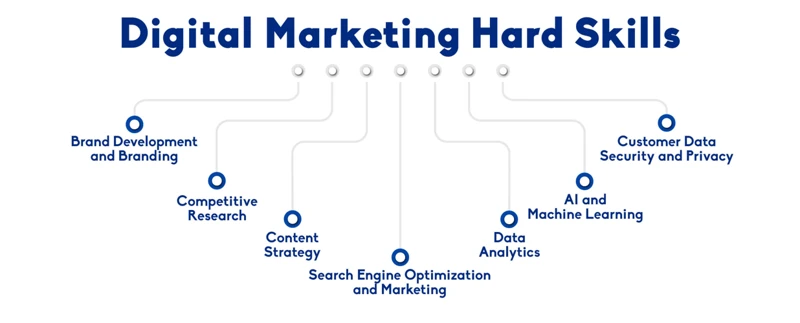
To excel in your marketing career, it is crucial to gain relevant education and knowledge in the field. There are several ways you can do this:
1. Pursue a marketing degree or certification: Consider enrolling in a marketing program at a university or college to gain a comprehensive understanding of marketing principles and strategies. Alternatively, you can opt for online courses or certifications offered by reputable institutions or platforms. These programs will provide you with a solid foundation in marketing concepts and techniques, giving you a competitive edge in the job market.
2. Attend workshops and webinars: Stay updated with the latest trends and developments in marketing by attending workshops and webinars. These events offer valuable insights from industry experts and provide opportunities for networking. Look for workshops and webinars that cover topics relevant to your marketing niche and make an effort to actively engage and participate in these events.
3. Read marketing books and blogs: Expand your knowledge by reading marketing books and following industry-leading blogs. Books authored by marketing professionals can provide in-depth knowledge and practical tips, while blogs offer timely information on industry trends and best practices. Stay updated with the latest publications and subscribe to marketing blogs to stay informed about emerging strategies and techniques.
By gaining relevant education and knowledge, you will be equipped with the necessary skills and expertise to succeed in your marketing career. Remember to continuously seek opportunities for learning and growth to stay ahead in this dynamic and ever-evolving field.
2.1 Pursue a Marketing Degree or Certification
Pursuing a marketing degree or certification is a valuable step towards building a strong foundation of knowledge and skills in the field. Here are some options to consider:
1. Bachelor’s Degree in Marketing: A bachelor’s degree in marketing provides a comprehensive education in various marketing principles and strategies. It covers essential topics such as consumer behavior, market research, advertising, and branding. This degree equips you with a broad understanding of marketing and can open doors to entry-level marketing positions.
2. Master’s Degree in Marketing: If you’re looking to advance your career or specialize in a specific area of marketing, a master’s degree in marketing can be beneficial. This advanced degree delves deeper into marketing concepts and allows for a more specialized focus. It can provide you with a competitive edge in the job market and opportunities for leadership roles.
3. Marketing Certification Programs: In addition to formal degrees, there are various certification programs available that can enhance your marketing skills and credentials. These programs often focus on specific areas of marketing, such as digital marketing or social media marketing. They typically involve coursework and exams to demonstrate proficiency in the subject matter. Obtaining a certification can showcase your commitment to continuous learning and professional development.
When deciding whether to pursue a degree or certification, consider your career goals, time commitment, and financial resources. A degree offers a more comprehensive education, while a certification program provides specialized knowledge in a shorter timeframe. Ultimately, both options can contribute to your marketing career growth and advancement.
Remember, education is a lifelong journey, and staying updated with the latest marketing trends and strategies is essential for success in this dynamic field. So, whether you choose to pursue a marketing degree, certification, or a combination of both, continue to seek opportunities for continuous learning and skill development.
2.2 Attend Workshops and Webinars
Attending workshops and webinars is a valuable way to gain relevant education and knowledge in the field of marketing. These events provide opportunities to learn from industry experts and stay updated on the latest trends and strategies. Workshops offer hands-on learning experiences, allowing you to practice and apply your skills in real-world scenarios. Webinars, on the other hand, provide convenient online learning options, allowing you to access valuable insights from anywhere.
When attending workshops and webinars, it’s important to choose those that align with your marketing niche and career goals. Look for events that cover topics and techniques specific to your specialization, whether it’s digital marketing, content marketing, or brand management. By focusing on workshops and webinars tailored to your interests, you can acquire specialized knowledge and stay ahead of the curve in your chosen field.
Additionally, attending these events provides opportunities for networking and connecting with industry professionals. You can engage in discussions, ask questions, and build relationships with like-minded individuals who share your passion for marketing. These connections can open doors to future collaborations, job opportunities, and mentorship.
To find workshops and webinars relevant to your marketing niche, you can search online directories, industry-specific websites, and social media platforms. Many organizations and marketing associations offer these educational events, so be sure to explore their websites and subscribe to their newsletters to stay informed about upcoming opportunities.
By actively participating in workshops and webinars, you can enhance your marketing knowledge and skills, stay updated with industry trends, and expand your professional network. So, make attending these events a priority as you embark on your marketing career journey.
2.3 Read Marketing Books and Blogs
To gain relevant education and knowledge in marketing, reading marketing books and blogs is an excellent way to stay updated with industry trends and best practices. There is a wealth of information available in the form of books and blogs written by experts in the field. These resources provide valuable insights, strategies, and case studies that can enhance your marketing skills and knowledge.
When selecting marketing books, look for highly recommended titles that cover a wide range of marketing topics, such as branding, digital marketing, social media marketing, and consumer behavior. Some popular marketing books include “Influence: The Psychology of Persuasion” by Robert Cialdini, “Contagious: How to Build Word of Mouth in the Digital Age” by Jonah Berger, and “Made to Stick: Why Some Ideas Survive and Others Die” by Chip Heath and Dan Heath. By reading these books, you can gain a deeper understanding of marketing concepts and learn practical strategies to apply in your career.
In addition to books, reading marketing blogs is a great way to stay updated with the latest industry trends and insights. Many marketing professionals and thought leaders maintain blogs where they share their expertise and provide valuable advice. Some popular marketing blogs include HubSpot, Moz, and Neil Patel’s blog. These blogs cover a wide range of marketing topics and provide valuable tips and strategies to enhance your marketing skills.
By regularly reading marketing books and blogs, you can expand your knowledge, stay updated with the latest industry trends, and gain insights from experienced professionals. This continuous learning will help you stay ahead in the dynamic field of marketing and position yourself as a knowledgeable and skilled marketer. So, make it a habit to dedicate time to reading marketing books and blogs to enhance your marketing expertise and stay informed about the ever-evolving marketing landscape.
3. Build a Strong Personal Brand
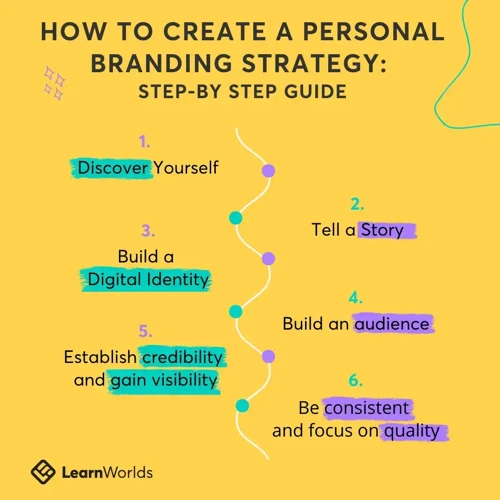
Building a strong personal brand is crucial in the competitive world of marketing. Your personal brand is what sets you apart from others and establishes your credibility and expertise in the industry. Here are some key steps to help you build a strong personal brand:
3.1 Define Your Unique Selling Proposition
Identify what makes you unique and valuable as a marketer. What skills, experiences, or perspectives do you bring to the table? Differentiate yourself by focusing on your strengths and the value you can provide to clients or employers. This could be your expertise in a specific marketing field, your creativity, or your ability to drive results.
3.2 Create a Professional Online Presence
In today’s digital age, it’s essential to have a strong online presence. Start by creating a professional website or blog where you can showcase your work, share your insights, and establish yourself as an industry expert. Utilize social media platforms such as LinkedIn, Twitter, or Instagram to connect with other professionals, share valuable content, and engage with your target audience.
3.3 Showcase Your Expertise Through Content Creation
One of the most effective ways to build your personal brand is by creating and sharing high-quality content. This can include blog posts, articles, videos, podcasts, or infographics that demonstrate your knowledge and expertise in your chosen marketing niche. Consistently producing valuable content will help you establish yourself as a thought leader and attract a loyal following.
By investing time and effort into building your personal brand, you can position yourself as a go-to expert in your field and open doors to exciting opportunities in your marketing career. Remember, your personal brand is a reflection of who you are and what you bring to the table, so be authentic, consistent, and always strive to deliver value to your audience.
3.1 Define Your Unique Selling Proposition
Defining your unique selling proposition (USP) is crucial in building a strong personal brand in the marketing industry. Your USP is what sets you apart from other marketers and showcases your value to potential employers or clients. To define your USP, start by identifying your strengths, skills, and experiences that make you unique. Consider what makes you stand out and what you can offer that others may not. It could be your expertise in a specific marketing field, your innovative approach to problem-solving, or your ability to connect with target audiences in a meaningful way. Once you have identified your USP, craft a compelling and concise statement that highlights your unique qualities and the value you bring to the table. This statement will serve as your personal brand’s foundation and can be used in your resume, LinkedIn profile, or when pitching yourself to clients. Remember, your USP should be authentic and backed by evidence of your accomplishments and skills. It should resonate with your target audience and demonstrate why they should choose you over other marketers. By defining your USP, you will position yourself as a standout marketing professional and increase your chances of success in the competitive industry.
3.2 Create a Professional Online Presence
Creating a professional online presence is crucial for establishing yourself as a credible and knowledgeable marketer. In today’s digital age, potential employers and clients often turn to the internet to learn more about individuals and their expertise. Here are some key steps to take in order to create a strong online presence:
1. Build a Personal Website: Start by creating a personal website that showcases your skills, experience, and accomplishments. Use this platform to highlight your portfolio, share your expertise through blog posts or articles, and provide contact information for potential clients or employers. Make sure your website is visually appealing, user-friendly, and reflects your personal brand.
2. Optimize Your Social Media Profiles: Use social media platforms such as LinkedIn, Twitter, and Instagram to establish your professional identity. Ensure that your profiles are complete and up-to-date, including a professional profile picture, a compelling bio, and relevant work experience. Share industry-related content, engage with others in your field, and join relevant groups and communities to expand your network.
3. Create Engaging Content: Demonstrate your expertise by creating valuable and engaging content related to your marketing niche. This could include blog posts, videos, podcasts, or infographics. Consistently produce high-quality content that showcases your knowledge and provides value to your target audience. This will help establish you as a thought leader and attract attention from potential clients or employers.
4. Engage with Your Audience: Interact with your audience by responding to comments, messages, and inquiries in a timely and professional manner. Engaging with your audience shows that you are approachable, knowledgeable, and invested in building relationships within the industry.
5. Seek Endorsements and Recommendations: Ask clients, colleagues, or mentors to provide endorsements or recommendations on platforms such as LinkedIn. These endorsements can serve as social proof of your skills and expertise, further enhancing your online credibility.
Creating a professional online presence is an ongoing process. Regularly update your website and social media profiles with new content and accomplishments. Monitor your online presence, respond to feedback, and adapt your strategy as needed to stay relevant and competitive in the ever-evolving digital landscape. By taking these steps, you can establish yourself as a reputable marketer and open doors to exciting career opportunities.
3.3 Showcase Your Expertise Through Content Creation
Showcasing your expertise through content creation is a powerful way to establish yourself as a thought leader in the marketing industry. By creating valuable and informative content, you can demonstrate your knowledge and skills to potential employers or clients. One effective way to showcase your expertise is by starting a blog or vlog where you can share your insights, tips, and industry updates. Write articles or create videos that offer practical advice and solutions to common marketing challenges. This not only establishes your credibility but also helps to attract an audience who can benefit from your expertise. Additionally, guest posting on reputable industry websites or contributing to marketing publications can further enhance your visibility and reach. Remember to promote your content through social media platforms and engage with your audience to foster meaningful connections and build your personal brand. By consistently producing high-quality content, you can position yourself as an authority in your marketing niche and open doors to exciting opportunities in your career. So, start creating content today and let your expertise shine.
4. Gain Practical Experience

To truly excel in your marketing career, gaining practical experience is essential. This hands-on experience allows you to apply the knowledge you have gained and develop the skills necessary to thrive in the industry. There are several avenues you can explore to gain practical experience in marketing.
1. Internships and Entry-Level Jobs: Internships provide valuable opportunities to work alongside experienced professionals and gain real-world experience. Look for internships in your chosen marketing specialization or industry. Entry-level jobs also offer practical experience and the chance to learn on the job.
2. Freelancing and Side Projects: Consider taking on freelance marketing projects or side gigs to build your portfolio and gain hands-on experience. This allows you to work with clients, develop marketing strategies, and implement campaigns, all while showcasing your skills and expertise.
3. Volunteer for Non-Profit Organizations: Volunteering for non-profit organizations can provide you with valuable marketing experience while making a positive impact. Offer your marketing services to help promote events, create social media campaigns, or develop marketing materials.
By gaining practical experience through internships, entry-level jobs, freelancing, side projects, or volunteering, you can develop a strong foundation of skills and knowledge that will set you apart in the competitive marketing industry. Remember to continuously update your portfolio and track your accomplishments to showcase your practical experience to potential employers or clients.
4.1 Internships and Entry-Level Jobs
Internships and entry-level jobs are crucial for gaining practical experience and kickstarting your marketing career. These opportunities provide hands-on training and exposure to real-world marketing scenarios. Internships allow you to apply the knowledge and skills you’ve gained in a professional setting, while entry-level jobs provide you with the opportunity to work on marketing campaigns and projects alongside experienced professionals.
To find internships and entry-level jobs in marketing, utilize online job boards, professional networking platforms, and career services at your educational institution. Look for positions that align with your interests and specialization. Digital marketing internships, for example, can provide valuable experience in areas such as search engine optimization (SEO), social media marketing, and email marketing.
When applying for internships and entry-level positions, highlight your relevant coursework, projects, and any previous marketing experience you may have. Tailor your resume and cover letter to showcase your skills and enthusiasm for the position. Additionally, consider reaching out to industry professionals or mentors for guidance and potential connections.
Internships and entry-level jobs not only allow you to gain practical skills and experience, but they also provide an opportunity to network with professionals in the field. Building relationships and connections in the industry can open doors for future career opportunities. Take advantage of networking events, industry conferences, and join professional marketing associations to expand your network and learn from seasoned professionals.
Remember, internships and entry-level jobs are stepping stones to your marketing career. Embrace these opportunities, be proactive, and seek out ways to contribute and learn from your colleagues. The experience and knowledge gained during this phase will set the stage for future growth and advancement in your marketing career. So, don’t underestimate the value of internships and entry-level jobs – they can be the catalyst for your success as a marketing professional.
(Reference: /how-to-be-a-marketing-manager/)
4.2 Freelancing and Side Projects
Freelancing and side projects can be a valuable way to gain practical experience in the marketing field while also showcasing your skills and building your portfolio. By taking on freelance projects or side gigs, you have the opportunity to work on real-world marketing campaigns and learn from hands-on experience.
One option for freelancing in the marketing industry is to offer your services as a digital creator. This could involve creating engaging content for social media platforms, designing eye-catching graphics, or producing compelling videos. By honing your skills as a digital creator, you can attract clients who are looking for help with their online presence and marketing strategies.
Additionally, taking on side projects can allow you to explore different aspects of marketing that interest you. For example, you might decide to start a blog or YouTube channel where you can create and share content related to your marketing niche. This not only helps you develop your skills but also demonstrates your expertise to potential employers or clients.
Freelancing and side projects provide valuable opportunities to apply your marketing knowledge, gain practical experience, and expand your professional network. By taking on these projects, you can enhance your skills, build your reputation, and potentially even generate income while still working towards your marketing career goals. So, if you’re looking to gain hands-on experience and make a name for yourself in the marketing industry, consider freelancing and side projects as an integral part of your career development journey.
4.3 Volunteer for Non-Profit Organizations
Volunteering for non-profit organizations can be a valuable way to gain practical experience in the field of marketing. Not only does it allow you to contribute to a cause you believe in, but it also provides an opportunity to apply your marketing skills in a real-world setting. Non-profit organizations often have limited resources and rely heavily on effective marketing strategies to raise awareness, attract donors, and promote their mission.
By volunteering for a non-profit organization, you can gain hands-on experience in various marketing activities. This may include creating and managing social media campaigns, developing content for fundraising efforts, organizing events and fundraisers, conducting market research, and building relationships with donors and sponsors. These experiences can help you develop a diverse skill set and demonstrate your ability to work in a dynamic and challenging environment.
Additionally, volunteering for a non-profit organization can provide networking opportunities and open doors to potential job opportunities in the future. You may have the chance to connect with industry professionals, build relationships, and showcase your dedication and skills. This can be particularly beneficial if you are interested in pursuing a career in cause marketing or working with non-profit organizations.
To find volunteer opportunities, research non-profit organizations in your area or within your niche of interest. Reach out to them directly to inquire about any available marketing or communications roles. You can also utilize online platforms and websites that connect volunteers with non-profit organizations seeking assistance. Remember to approach your volunteer work with professionalism, enthusiasm, and a willingness to learn. This will not only benefit the organization you are volunteering for but also help you gain valuable experience and make a positive impact in your community.
Volunteering for non-profit organizations can be a rewarding way to gain practical experience, expand your skill set, and make a difference in the world. It allows you to apply your marketing knowledge in a meaningful way and showcases your passion for using marketing strategies to create positive change. Consider exploring volunteer opportunities with non-profit organizations to enhance your marketing career and contribute to causes you care about.
5. Network and Connect with Industry Professionals

Networking and connecting with industry professionals is a crucial step in building your marketing career. By establishing relationships with others in the field, you can gain valuable insights, opportunities, and support. Here are some effective strategies to network and connect with industry professionals:
1. Attend Marketing Events and Conferences: Participate in industry-specific events and conferences where you can meet and connect with professionals in your field. These events provide a platform for learning, sharing ideas, and building relationships. Look for events related to your marketing specialization and make an effort to engage with fellow attendees.
2. Join Professional Marketing Associations: Become a member of professional marketing associations relevant to your niche. These associations often host networking events, workshops, and webinars, providing you with opportunities to connect with like-minded individuals and industry experts. Active participation in these associations can help you expand your network and stay updated on the latest industry trends.
3. Utilize Social Media for Networking: Leverage social media platforms like LinkedIn, Twitter, and Facebook to connect with industry professionals. Follow influential marketers, join marketing-related groups and communities, and engage in conversations by sharing valuable content and insights. Utilize these platforms to network, ask questions, and build relationships with professionals across different marketing fields.
Networking Tip: When connecting with industry professionals, always personalize your messages and demonstrate genuine interest in their work. Offer value by sharing relevant resources, insights, or asking thoughtful questions. Building a strong network requires genuine connections and mutual support.
By actively networking and connecting with industry professionals, you can expand your knowledge, gain valuable insights, and open doors to potential career opportunities. Remember, networking is about building relationships and creating mutually beneficial connections, so approach it with authenticity and a willingness to contribute to the marketing community.
5.1 Attend Marketing Events and Conferences
Attending marketing events and conferences is a valuable opportunity for aspiring marketers to expand their knowledge, network with industry professionals, and stay updated with the latest trends and strategies. These events bring together experts and thought leaders in the marketing field, providing a platform for learning and idea exchange. By attending these events, you can gain insights into emerging marketing techniques, discover new tools and technologies, and learn from successful marketers who have achieved notable results.
Networking is a key aspect of marketing events and conferences. These gatherings attract professionals from various sectors of the industry, creating a conducive environment for building connections and relationships. Engaging in conversations with like-minded individuals allows you to exchange ideas, collaborate on projects, and potentially open doors for future career opportunities. Additionally, networking can lead to partnerships, mentorship opportunities, and valuable industry connections that can help you advance your career.
To make the most out of attending marketing events and conferences, it’s important to come prepared. Research the speakers and sessions beforehand to identify the ones that align with your interests and goals. Take notes during the presentations and engage in discussions during Q&A sessions to gain deeper insights and expand your understanding. Don’t be afraid to approach speakers and fellow attendees to introduce yourself and initiate conversations. Building genuine connections and fostering relationships can greatly benefit your professional growth.
By attending marketing events and conferences, you demonstrate your commitment to continuous learning and professional development. You stay informed about the latest industry trends, strategies, and best practices, which can give you a competitive edge in the job market. Additionally, the knowledge and inspiration gained from these events can fuel your creativity and help you generate innovative ideas for your marketing campaigns.
Attending marketing events and conferences is an essential step in advancing your marketing career. It provides opportunities to learn from industry experts, network with professionals, and stay updated with industry trends. By actively participating in these events, you can gain valuable insights, forge meaningful connections, and position yourself as a knowledgeable and dedicated marketer. So, make it a priority to attend relevant marketing events and conferences to enhance your skills and propel your career forward.
5.2 Join Professional Marketing Associations
Joining professional marketing associations can be a valuable step in advancing your marketing career. These associations provide a platform for networking, learning, and staying updated with industry trends. By becoming a member, you gain access to a community of like-minded professionals who can offer guidance, support, and opportunities for collaboration. Professional marketing associations often organize events, workshops, and conferences where you can expand your knowledge and skills. Additionally, these associations may offer resources such as industry reports, webinars, and certifications that can enhance your credibility and marketability. By actively participating in these associations, you can establish yourself as a dedicated and knowledgeable marketer, opening doors for career growth and advancement. Consider joining associations such as the American Marketing Association (AMA) or the Digital Marketing Association (DMA) to connect with industry experts and gain valuable insights. By immersing yourself in these communities, you can stay on top of the latest marketing trends and build a strong professional network that can propel your marketing career forward.
5.3 Utilize Social Media for Networking
In today’s digital age, social media has become a powerful tool for networking and connecting with industry professionals. By utilizing social media platforms effectively, you can expand your professional network, stay updated with industry trends, and showcase your expertise. Here are some strategies to leverage social media for networking:
1. Create a professional online presence: Start by optimizing your social media profiles to reflect your personal brand and professional interests. Use a clear and professional profile picture, write a compelling bio that highlights your skills and expertise, and include relevant keywords to make your profile more discoverable.
2. Engage with industry influencers: Follow and engage with influential figures in your marketing niche. Share their content, leave thoughtful comments, and engage in conversations. This not only helps you stay updated with the latest industry trends but also allows you to connect with professionals who can potentially mentor or collaborate with you.
3. Join industry-specific groups and communities: Find and join social media groups and communities that cater to your marketing niche. These groups often host discussions, share valuable resources, and provide networking opportunities. Actively participate in these communities by sharing your insights, asking questions, and offering help to establish yourself as a valuable member.
4. Share your expertise through content creation: Create and share valuable content related to your marketing niche on social media platforms. This can include blog articles, videos, infographics, or podcasts. By consistently sharing high-quality content, you can position yourself as an expert in your field and attract like-minded professionals who are interested in your insights.
5. Attend virtual events and webinars: Many industry events and conferences have shifted to virtual platforms, providing an opportunity to network and learn from industry leaders and experts. Follow relevant hashtags, participate in live chats, and connect with attendees to expand your network and stay up to date with the latest industry trends.
Remember, social media networking is not just about self-promotion. It’s about building genuine relationships, providing value, and engaging with others in your industry. By utilizing social media effectively, you can connect with industry professionals, gain insights, and open doors to exciting opportunities in your marketing career.
6. Stay Updated with Industry Trends and Changes

Staying updated with industry trends and changes is crucial for any marketing professional. The marketing landscape is constantly evolving, with new technologies, strategies, and consumer behaviors emerging regularly. To stay ahead of the curve, here are some steps you can take:
1. Follow marketing influencers and thought leaders: Digital creators and industry experts often share valuable insights and the latest trends on their blogs, social media accounts, and podcasts. By following them, you can stay informed about the latest developments in the marketing world.
2. Engage in continuous learning: Take advantage of online courses, webinars, and workshops that cover topics related to marketing. This will help you expand your knowledge and stay updated with the latest trends and best practices. Additionally, consider obtaining certifications in specific areas of marketing to demonstrate your expertise.
3. Join industry-specific communities: Participate in online forums, LinkedIn groups, and professional communities to connect with other marketers and gain insights into industry trends. Engage in discussions, ask questions, and share your own knowledge and experiences.
4. Subscribe to industry publications and newsletters: Stay informed by subscribing to reputable marketing publications and newsletters. These resources often provide in-depth analysis, case studies, and expert insights on the latest marketing trends and changes.
5. Attend conferences and events: Make an effort to attend marketing conferences, workshops, and events. These gatherings provide valuable networking opportunities and allow you to learn from industry leaders and experts firsthand.
By staying updated with industry trends and changes, you can adapt your strategies and approaches accordingly, ensuring that you remain competitive and relevant in the ever-changing marketing landscape.
6.1 Follow Marketing Influencers and Thought Leaders
To stay updated with the latest industry trends and insights, it’s crucial to follow marketing influencers and thought leaders. These individuals have established themselves as experts in the field and consistently share valuable knowledge and insights. By following them, you can gain valuable industry knowledge, stay informed about new strategies and techniques, and learn from their experiences. Here are a few ways you can follow marketing influencers and thought leaders:
1. Social Media: Many influencers and thought leaders have a strong presence on social media platforms like Twitter, LinkedIn, and Instagram. Follow their accounts to access their latest posts and updates. Additionally, engage with their content by commenting and sharing your thoughts to foster connections and build relationships.
2. Subscribe to Their Blogs and Newsletters: Many influencers and thought leaders have their own blogs or newsletters where they share in-depth articles, case studies, and industry insights. Subscribe to their blogs or newsletters to receive regular updates directly in your inbox.
3. Attend Webinars and Online Events: Influencers often host webinars or online events where they share their expertise and provide valuable insights. Keep an eye out for these events and make an effort to attend them. They are a great opportunity to learn from the best in the industry and connect with like-minded professionals.
4. Join Online Communities: There are numerous online communities and forums dedicated to marketing. These communities often attract industry experts who actively participate in discussions and share valuable insights. Joining these communities allows you to engage directly with influencers and thought leaders, ask questions, and learn from their experiences.
Remember, following marketing influencers and thought leaders is not just about passively consuming content. Actively engage with their posts, ask questions, and contribute to discussions. Building relationships and connections within the industry can open doors to new opportunities and help you stay ahead in your marketing career.
6.2 Engage in Continuous Learning
Engaging in continuous learning is essential for staying at the forefront of the marketing industry. With technology and consumer behavior constantly evolving, it’s crucial to keep up with the latest trends and strategies. There are several ways you can engage in continuous learning to enhance your marketing skills and knowledge.
Firstly, make it a habit to follow marketing influencers and thought leaders. These individuals are experts in the field and often share valuable insights, tips, and updates on industry trends. Follow them on social media platforms, subscribe to their newsletters, and read their blogs or articles. By staying connected to these industry leaders, you can gain valuable knowledge and stay updated on the latest marketing techniques.
Additionally, engage in continuous learning by attending workshops, webinars, and conferences. These events provide opportunities to learn from industry experts, network with other professionals, and gain practical insights. Look for relevant marketing events in your area or attend virtual events that offer valuable content and networking opportunities. By participating in these events, you can expand your knowledge and stay informed about the latest marketing strategies and technologies.
Another way to engage in continuous learning is by enrolling in online courses or pursuing certifications. There are numerous online platforms that offer courses on various marketing topics, such as SEO, social media marketing, content marketing, and more. These courses provide structured learning materials and assessments to help you deepen your understanding and skills. Additionally, consider pursuing certifications from reputable organizations, as they can enhance your credibility and demonstrate your expertise in specific marketing areas.
Lastly, make it a habit to read marketing books, industry publications, and relevant blogs. These resources offer valuable insights, case studies, and practical tips from experienced marketers. Set aside time each week to read and absorb new information, whether it’s a book, an industry magazine, or a blog post. By consistently reading and staying informed, you can continuously expand your knowledge and stay ahead of the curve.
Engaging in continuous learning is not only crucial for staying updated with industry trends but also for personal and professional growth. By actively seeking out opportunities to learn and expand your knowledge, you can become a more effective and knowledgeable marketer. Embrace a mindset of lifelong learning and commit to staying curious and open to new ideas and strategies. The marketing landscape is constantly evolving, and by engaging in continuous learning, you can adapt and thrive in this dynamic industry.
7. Constantly Improve Your Skills and Adapt
In the fast-paced world of marketing, it’s crucial to constantly improve your skills and adapt to stay ahead of the competition. Here are some strategies to help you continuously enhance your marketing abilities and keep up with industry changes:
1. Invest in Continuous Learning: Take advantage of online courses, webinars, and workshops to expand your knowledge and stay updated with the latest marketing trends and techniques. Look for reputable sources such as industry experts, marketing associations, and educational platforms to ensure you’re learning from credible and up-to-date information.
2. Seek Feedback and Mentorship: Request feedback from colleagues, supervisors, or mentors to gain valuable insights into your strengths and areas for improvement. Consider finding a mentor who can provide guidance, share their experiences, and help you navigate your marketing career.
3. Stay Updated with Industry News: Regularly read marketing blogs, industry publications, and follow influential marketing professionals on social media to stay informed about the latest news, strategies, and innovations in the field. This will help you stay ahead of industry changes and adapt your marketing approaches accordingly.
4. Attend Marketing Conferences and Events: Participating in marketing conferences and events allows you to network with industry professionals, learn from expert speakers, and discover new marketing strategies and technologies. These events provide valuable opportunities to gain insights, exchange ideas, and stay connected with the evolving marketing landscape.
5. Embrace Data and Analytics: In today’s data-driven marketing world, it’s essential to have a solid understanding of analytics tools and how to interpret data. Continuously improve your skills in data analysis, reporting, and leveraging insights to optimize marketing campaigns and make data-driven decisions.
6. Cultivate Creativity: Marketing requires a balance of analytical thinking and creative problem-solving. Engage in activities that foster creativity, such as brainstorming sessions, reading diverse content, exploring different art forms, or collaborating with colleagues to generate innovative marketing ideas.
7. Adapt to Technological Advances: The marketing landscape is constantly evolving with new technologies and platforms emerging regularly. Stay updated with the latest marketing tools, software, and platforms to effectively reach and engage your target audience. Embrace emerging technologies such as artificial intelligence, virtual reality, and voice search to adapt your marketing strategies accordingly.
By consistently improving your skills, staying updated with industry trends, and adapting to changes, you’ll position yourself as a competent and valuable marketing professional. Remember, the key to success in marketing lies in your ability to continuously learn, adapt, and innovate in this ever-evolving field.
Conclusion
In conclusion, starting a marketing career requires careful consideration and strategic planning. By determining your marketing niche, gaining relevant education and knowledge, building a strong personal brand, gaining practical experience, networking with industry professionals, staying updated with industry trends, and constantly improving your skills, you can position yourself for success in the competitive world of marketing. Remember to remain adaptable and open to learning, as the marketing landscape is constantly evolving. With dedication, passion, and a proactive mindset, you can embark on a rewarding marketing career and make a significant impact in the industry. So, take the first step, follow the comprehensive guide, and start your journey towards a successful marketing career today.
Frequently Asked Questions
1. What are some popular marketing specializations?
Popular marketing specializations include digital marketing, social media marketing, content marketing, brand management, and market research.
2. How do I determine which marketing field is right for me?
You can determine the right marketing field for you by researching different fields, identifying your interests and skills, and considering the demand and potential for growth in each field.
3. Do I need a marketing degree to start a career in marketing?
While a marketing degree can be beneficial, it is not always necessary. Many marketers gain relevant knowledge and skills through certifications, workshops, and practical experience.
4. How can I gain practical experience in marketing?
You can gain practical experience in marketing through internships, entry-level jobs, freelancing, side projects, and volunteering for non-profit organizations.
5. How important is networking in the marketing industry?
Networking is crucial in the marketing industry as it allows you to connect with industry professionals, learn from their experiences, and potentially open doors to new opportunities.
6. What are some ways to build a strong personal brand in marketing?
You can build a strong personal brand in marketing by defining your unique selling proposition, creating a professional online presence, and showcasing your expertise through content creation.
7. How can I stay updated with industry trends and changes?
You can stay updated with industry trends and changes by following marketing influencers and thought leaders, engaging in continuous learning, and attending marketing events and conferences.
8. How important is continuous skill improvement in marketing?
Continuous skill improvement is essential in marketing as the industry is constantly evolving. By staying up-to-date with the latest tools, techniques, and trends, you can remain competitive and adapt to changes.
9. Can I switch marketing specializations after starting my career?
Yes, it is possible to switch marketing specializations after starting your career. However, it may require additional education, training, and experience to transition into a new specialization.
10. How can I stand out in a competitive marketing industry?
You can stand out in a competitive marketing industry by showcasing your unique skills and experiences, staying up-to-date with industry trends, and continuously improving your knowledge and expertise.





